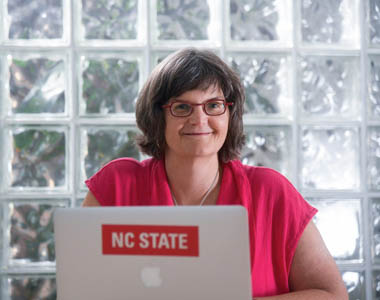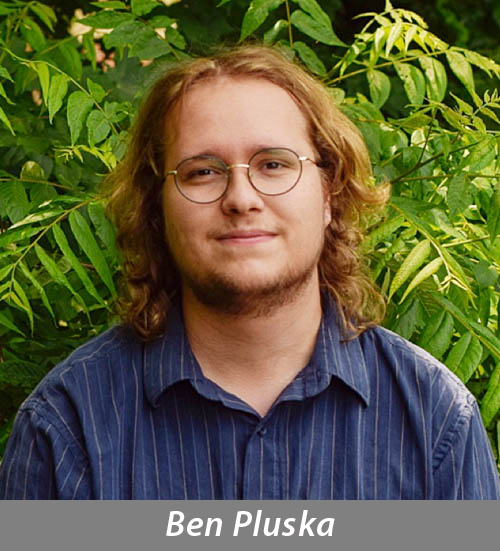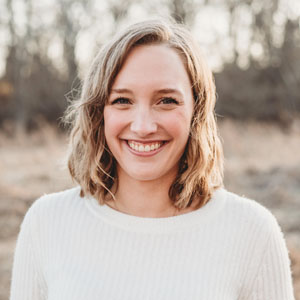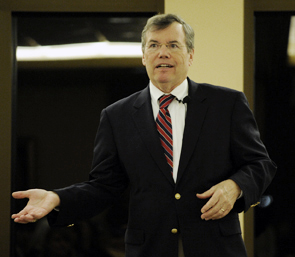 | | | At the end of 2023, the right-wing U.S. House of Representatives grabbed the headlines accusing Harvard and other universities of inadequate responses to antisemitism following the brutal Hamas attack on Israel. But as the new year kicks off, the long-standing radical right playbook of attacking colleges and universities as purveyors of “woke” history and especially of diversity, equity and inclusion (DEI) has clearly emerged as the main agenda. Attacks on DEI are prevalent, especially at the state level where legislatures control budgets and have slashed funding for DEI initiatives and programs. And, despite the disaster of Governor Ron DeSantis’ presidential campaign, Florida remains a major culprit. Josh Moody’s article in Inside Higher Ed highlights the hypocrisy of honoring Dr. Martin Luther King, Jr one day and attacking DEI the next: On Monday, the Florida Department of Education honored civil rights activist Martin Luther King Jr. for his “dedication to service and equality.” On Wednesday, Florida’s State Board of Education voted to prohibit spending on diversity, equity and inclusion programs at 28 state colleges. The vote will ensure that Florida state colleges will be unable to fund DEI programs which lawmakers have described as “indoctrination.” However, Florida is not alone in its assault. In the coming months, some 19 bills in states like Indiana, Kentucky, Missouri and South Carolina will seek to ban the funding or use of diversity, equity, and inclusion offices, pledges by faculty and staff to commit to creating a more inclusive environment on campus, or identity-based preferences for hiring and admissions. Yet even amidst such attacks on academic freedom and diversity that will surely undermine environmental justice programs and teaching, American campuses continue as important centers of teaching, research, and work on the environment, sustainability and justice.  At NC State, a member of the Rachel Carson Council Campus Network (RCCN), for example, Professor Dr. Jane Hoppin is conducting critical research to identify health impacts from PFAS in drinking water, a serious and disproportionate problem for environmental justice communities. At NC State, a member of the Rachel Carson Council Campus Network (RCCN), for example, Professor Dr. Jane Hoppin is conducting critical research to identify health impacts from PFAS in drinking water, a serious and disproportionate problem for environmental justice communities.
 Students , especially, have continued to organize and speak out despite the growing repressive atmosphere in conservative states. In our “RCC Fellows Speak Out” section, among other essays by student leaders, RCC National Environmental Leadership Fellow (NELF) Ben Pluska details the devastating pollution and health effects of a landfill in Snow Hill, North Carolina, on a small, poor Black community whose presence there spans generations. And, in an elegiac evocation of the environmental classic, An Island Out of Time, RCC Fellow Nathan Villiger revisits Smith Island, Maryland, and charts, in prose and pictures, the effects of rising sea levels on the declining local community and its way of life. Students , especially, have continued to organize and speak out despite the growing repressive atmosphere in conservative states. In our “RCC Fellows Speak Out” section, among other essays by student leaders, RCC National Environmental Leadership Fellow (NELF) Ben Pluska details the devastating pollution and health effects of a landfill in Snow Hill, North Carolina, on a small, poor Black community whose presence there spans generations. And, in an elegiac evocation of the environmental classic, An Island Out of Time, RCC Fellow Nathan Villiger revisits Smith Island, Maryland, and charts, in prose and pictures, the effects of rising sea levels on the declining local community and its way of life. And, judging by applications for the 2024-2025 cohort of RCC National Environment Leadership Fellows, (Read and apply here), the attacks on DEI, the EPA, environmental justice, and more are not deterring the next generation of young environmental leaders across the nation. In fact, over 60 of the top RCC student environmental advocates have been selected to attend the Rachel Carson Council’s 2024 Advocacy Days, March 18-19, in the nation’s capital where they will have the opportunity to meet with, and surely enlighten, some of the very legislators who have been vocal in their opposition to trends in American higher education. Mackenzie Kirschbaum, Associate Director, Civic and Campus Engagement. | | | | | | | |  Mackenzie Kirschbaum, M.S., is the Associate Director of Civic and Campus Engagement for the Rachel Carson Council. An advocate for environmental justice, climate change and policy, Mackenzie works to combine science, justice, and policy to advocate for imaginative solutions to environmental challenges. Mackenzie Kirschbaum, M.S., is the Associate Director of Civic and Campus Engagement for the Rachel Carson Council. An advocate for environmental justice, climate change and policy, Mackenzie works to combine science, justice, and policy to advocate for imaginative solutions to environmental challenges. | | | | | | DEI Spending Banned, Sociology Scrapped in Florida Florida’s State Board of Education imposed new prohibitions on DEI spending at state colleges, following a similar decision for state universities. On Monday, the Florida Department of Education honored civil rights activist Martin Luther King Jr. for his “dedication to service and equality.” On Wednesday, Florida’s State Board of Education voted to prohibit spending on diversity, equity and inclusion programs at 28 state colleges. | | | | | | | | Amid National Backlash, Colleges Brace for Fresh Wave of Anti-DEI Legislation At least 14 states this year will consider legislation that could dismantle the ways college administrators attempt to correct historical and structural gender and racial disparities and make campus climates more inclusive, according to a Chronicle of Higher Education analysis. The Chronicle has identified at least 19 bills that will be considered in the coming months that seek to ban the employment and funding of diversity, equity, and inclusion offices. | | | | | | | | Exposure Study Evolves to Measure PFAS’ Long-term Effects It’s been more than six years since the first blood samples were collected from residents in the Cape Fear region participating in a study to measure their exposure to synthetic chemicals being discharged into their drinking water source. That study, known as the GenX Exposure Study, has since then transitioned to one that will allow researchers to examine potential long-term health effects in hundreds of North Carolinians who for years unknowingly drank water containing per- and polyfluoroalkyl substances, or PFAS. | | | | | | | | An Island Out of Time – Tom Horton’s Classic, A Climate Change Reminder When Tom Horton traded his Baltimore row home for an old fisherman’s house on Smith Island, he did so not intending to write a book but rather because Horton “… liked to muck around in the marshes of my native Chesapeake.” Despite his original plans, less than a decade later Horton would publish an account of his family’s time on Smith Island, titled An Island Out of Time: A Memoir of Smith Island in the Chesapeake. The title originally referred to Smith Island’s unique culture, reminiscent of early tidewater settlements that have all but disappeared from Maryland’s mainland. | | | | | | | | | | | | | | | | The Next Frontier of Greenwashing: Petrochemical PR With a growing industry, we can expect to see more chatter about petrochemicals, but what are they, and why does how the industry communicates? In the evolving landscape of global energy consumption, oil companies are adapting their strategies as the world shifts towards renewable energy sources. Recently, fossil fuel companies have told their shareholders that as society moves away from oil and gas, they will keep profits up by investing in petrochemicals. Petrochemicals are expected to account for nearly 30 percent of oil demand by 2030. | | | | | | | | | | Climate Footprint Labels: Eco-Conscious Trend or Greenwashing Target? As 2024 begins, trend forecasters are predicting what the new kale or hoverboard will be this year. 2024’s emerging trends range from declining fertility rates to the revamping of in-person retail shopping. Perhaps the hardest trend to ignore is rising global temperatures. Environmental consciousness is increasingly present in the public discourse, and the market has to respond accordingly. Consumer preferences are evolving around buzzwords like “upcycled” and “microplastics” as being green becomes more and more virtuous. | | | | | | | | Greenhushing? In this era of heightened environmental awareness, the term “greenwashing” frequently makes headlines, spotlighting companies that overstress their eco-friendly efforts. However, there’s a less discussed but equally critical counterpart: “green hushing.” This term came to my attention during a global sustainability class I took this semester, which explored the intricate challenges corporations face in attaining sustainability objectives. So, what exactly is green hushing? Simply put, it’s the opposite of greenwashing. | | | | | | | | COP 28 and Campus Engagement The Conference of Parties (COP) takes place every year, with the participation of individuals and groups representing countries worldwide. The main purpose of COP is to agree on ways to address the climate crisis and associated challenges. This year COP 28 was held in Dubai, United Arab Emirates (UAE) from November 30th to December 12th with the participation of more than 70,000 delegates. Here, I aim to outline the significant landmarks of COP 28 for the campus community and youth. | | | | | | | | UC Santa Cruz Division of Undergraduate Education Appoints Shelly Grabe as New Provost of Rachel Carson College The Division of Undergraduate Education at UC Santa Cruz proudly announces the appointment of Shelly Grabe as the new Provost of Rachel Carson College. Grabe, a Professor of Social Psychology at UC Santa Cruz, brings a depth of experience in research, activism, and interdisciplinary collaboration. “The Colleges, College Provosts, and the Council of Provosts, are critical in shaping the academic experience for our students," said Vice Provost and Dean of Undergraduate Education and Global Engagement Richard Hughey. | | | | | | | | The Future of Coastal NC Wetland Wetlands are extremely valuable ecosystems, however, they have historically been subjected to high levels of degradation due to urban development. Carteret County is one of 20 coastal counties in North Carolina, supporting a variety of ecosystems, including wetlands. North Carolina wetlands contribute significantly to the state’s economy, biodiversity, public health, and flood protection. Due to changes in federal and state protections in 2023, increased development could put wetland health at risk. | | | | | | | | HBCU Roots—Elizabeth City State University. Though the downtown is now a collection of mostly 20th century buildings, Elizabeth City, the center of Pasquotank County government and trade, has roots going back to the earliest years of the Colony. Its recorded past can be traced back to one of the founding acts of the Colony in 1665, when a group met at Halls Creek and established North Carolina’s original legislative assembly. | | | | | | | | To Slash Carbon Emissions, Colleges Are Digging Really Deep A growing number of colleges and universities are using deep underground pipes to heat and cool their buildings without burning fossil fuels. When administrators at Princeton University decided to cut the carbon emissions that came from heating and cooling their campus, they opted for a method that is gaining popularity among colleges and universities. | | | | | | | | | | | | Michigan State Carson Lecture Series Brings Prominent Scientists The weekly Rachel Carson Anniversary Lecture Series brings a variety of scholars to explore aspects of sustainability and systems integration. Thirteen of the world’s most prominent scholars across many disciplines of sustainability will be part of a lecture series honoring the spirit of communicating critical scientific messages. The Rachel Carson Distinguished Lecture Anniversary Series honors the 60th anniversary of the passing of Rachel Carson, a pioneer of the global environmental movement, and celebrates the 20th anniversary of the Center for Systems Integration and Sustainability.(CSIS). | | | | | | | | RCC Fellowship 2024-2025 The RCC National Environment Leadership Fellowship (NELF) Program is designed to identify outstanding students with a passion for environmental education, organizing, and advocacy and provide them with financial support to carry out valuable projects and campaigns on behalf of the RCC. To apply to the program, students propose projects that are focused on sustainability and environmental justice to be carried out from their campuses and their communities. | | | | | | | | RCC prides itself on its National Campus Network of 66 colleges and universities. We are working to engage faculty members, students, and administrators in our efforts for a more just and sustainable world. With our growing fellowship program, our presence on campuses across the country has never been greater. Contact RCC today to bring our staff to your campus for lectures, workshops, or meetings to help find the best ways to engage your faculty and students in the efforts against climate change, environmental justice, and the work of the Rachel Carson Council. Campus Visits with RCC President, Dr. Robert K. Musil  RCC President & CEO, Dr. Robert K. Musil, a national leader in climate change, environmental justice and health is again available to book for in-person campus speaking events! Musil has been called “informative, challenging and inspirational all at once.” He is “motivational” with “intellectual depth” and “extraordinary impact.” RCC President & CEO, Dr. Robert K. Musil, a national leader in climate change, environmental justice and health is again available to book for in-person campus speaking events! Musil has been called “informative, challenging and inspirational all at once.” He is “motivational” with “intellectual depth” and “extraordinary impact.”
Dr. Musil is available for campus lectures and visits involving classes, meetings with campus and community groups, consultations with faculty and administrators, or for Earth Day, Commencement, and other special events. Stays range from one to three days. Reduced fees are in place for 2024-2025 and can be designed to meet reduced budgets. To arrange a campus visit with Dr. Musil, contact the RCC President’s Office at office@rachelcarsoncouncil.org. The RCC also offers talks, classes, and workshops on student engagement, activism, sustainability, and the RCC Fellowship program with: Director of Policy and Programs, Maya Cohn; Associate Director of Civic and Campus Engagement, Mackenzie Kirschbaum; Associate Director of Communications, Claudia Steiner; and Research and Policy Associate, Theo Daniels. To arrange, contact Associate Director of Civic and Campus Engagement, Mackenzie Kirschbaum. | | | | | | | |  The Rachel Carson Council Depends on Tax-deductible Gifts From Concerned Individuals Like You. Please Help If You can. The Rachel Carson Council Depends on Tax-deductible Gifts From Concerned Individuals Like You. Please Help If You can. | | | |  Sign Up Here to Receive the RCC E-News and Other RCC Newsletters, Information and Alerts. Sign Up Here to Receive the RCC E-News and Other RCC Newsletters, Information and Alerts. | | | | | | | | | | | |